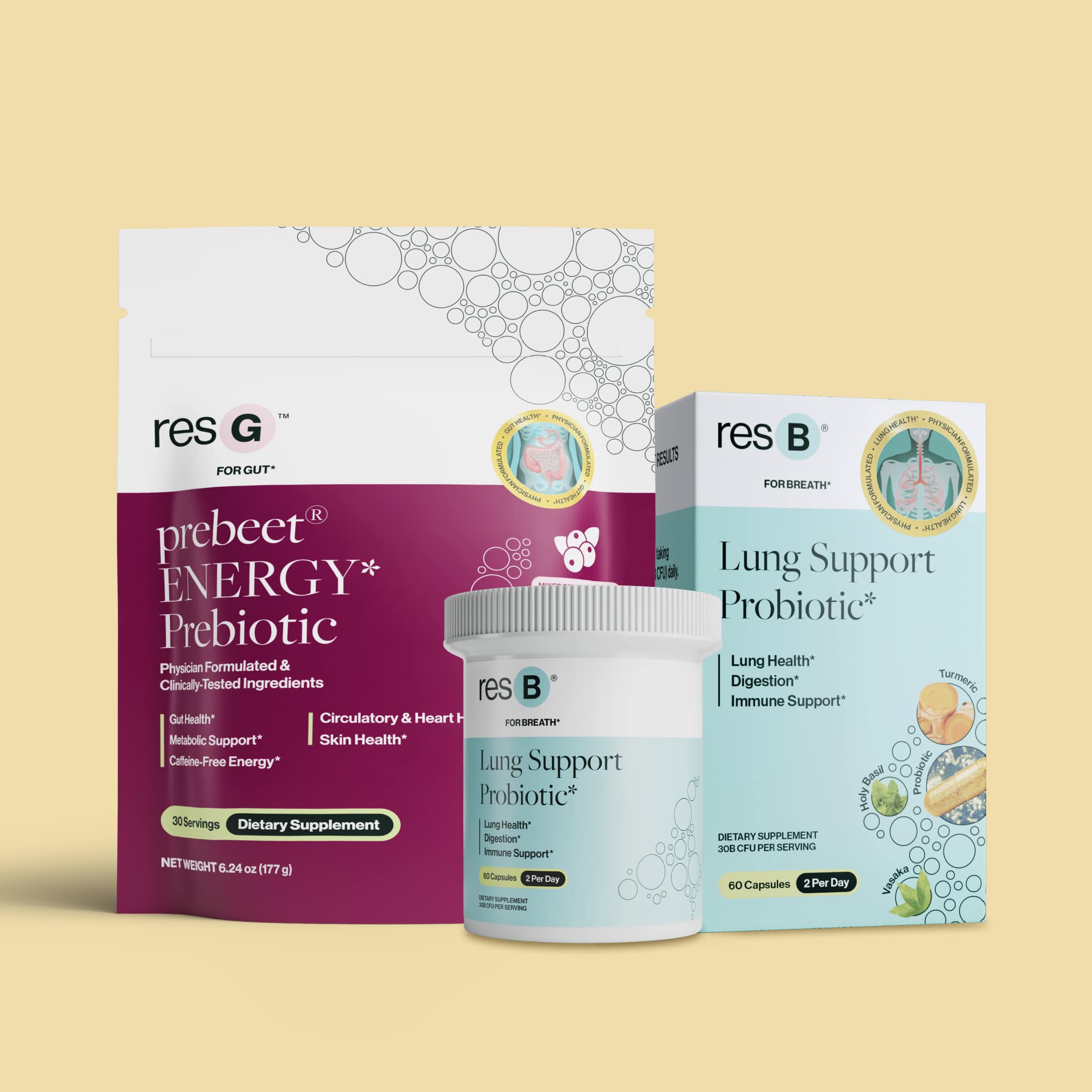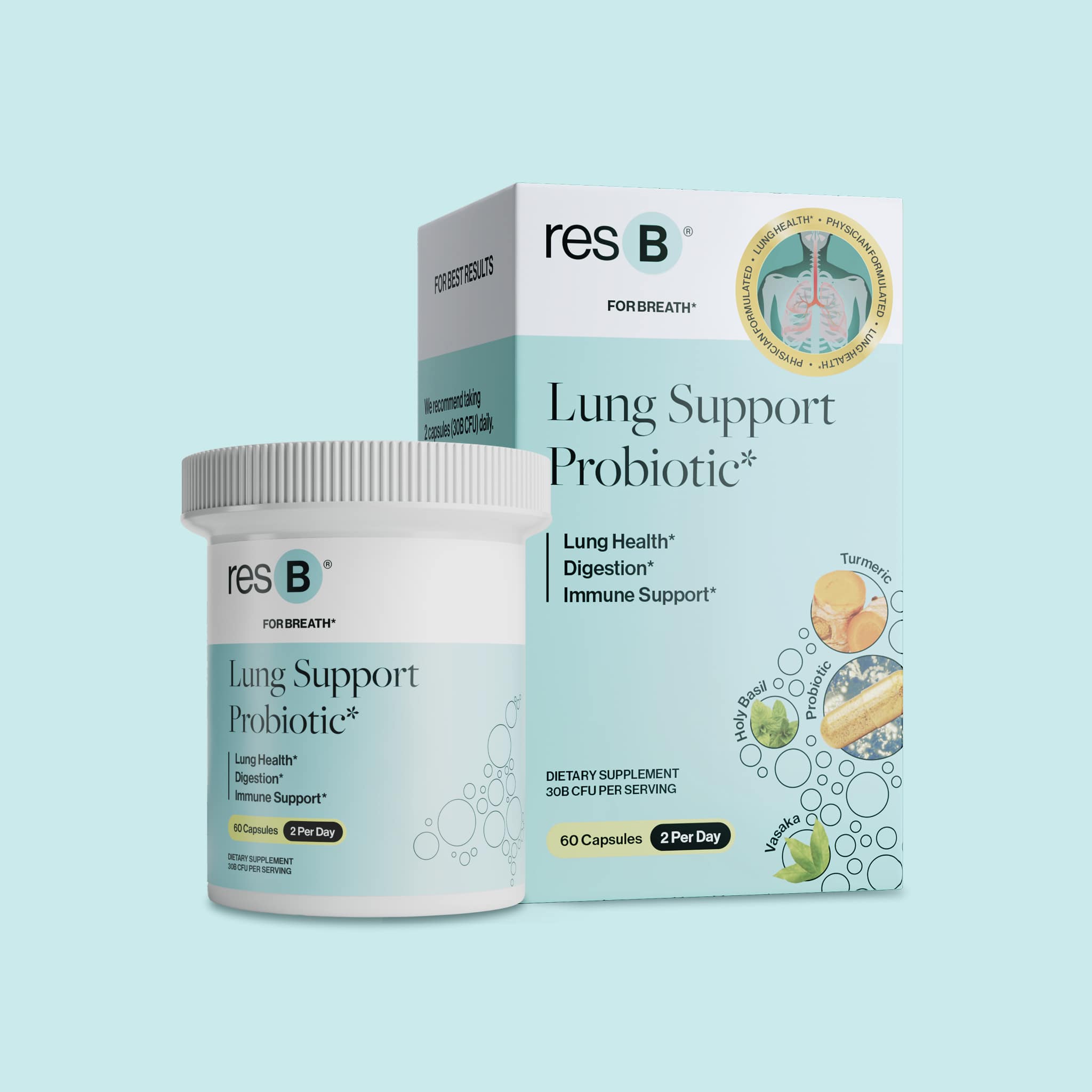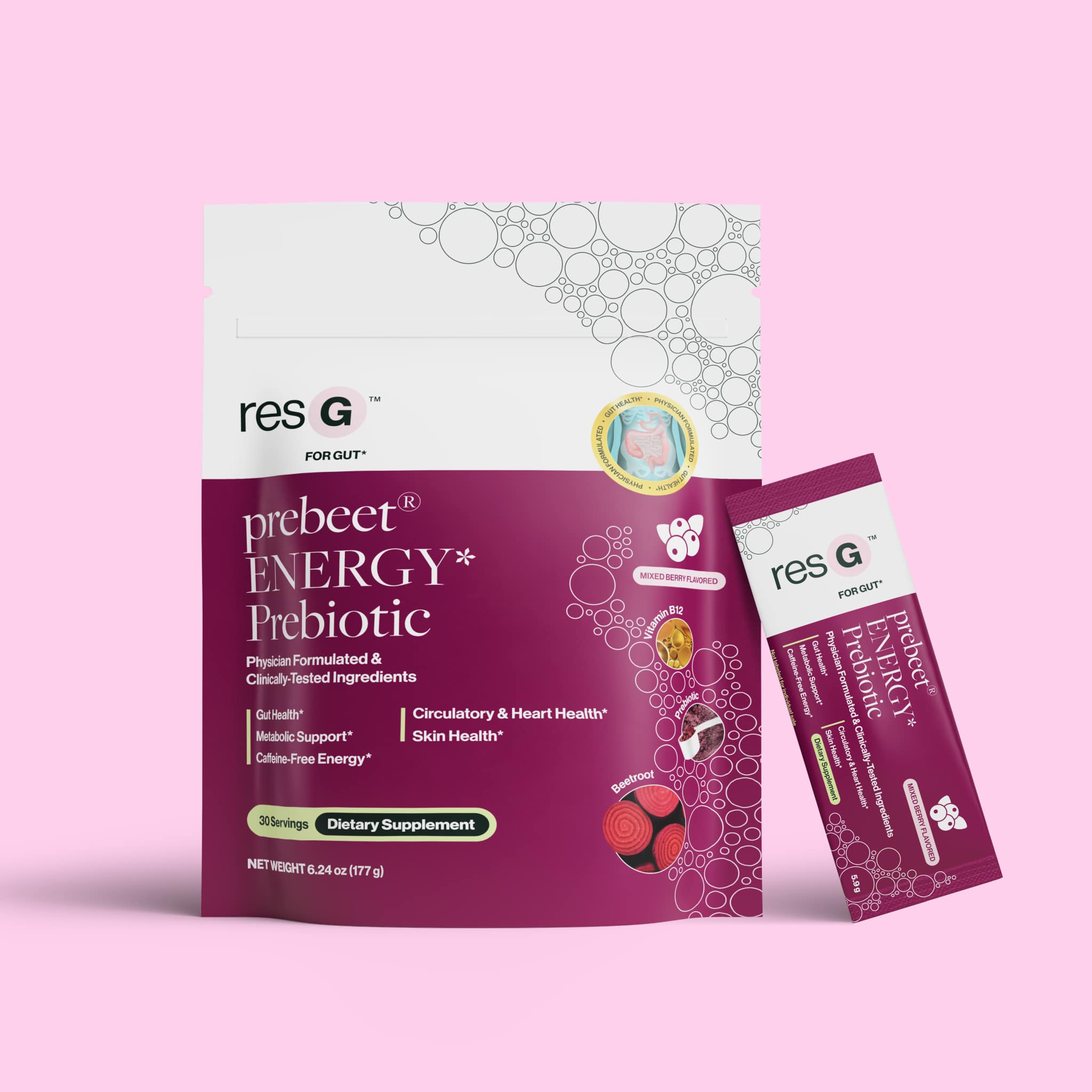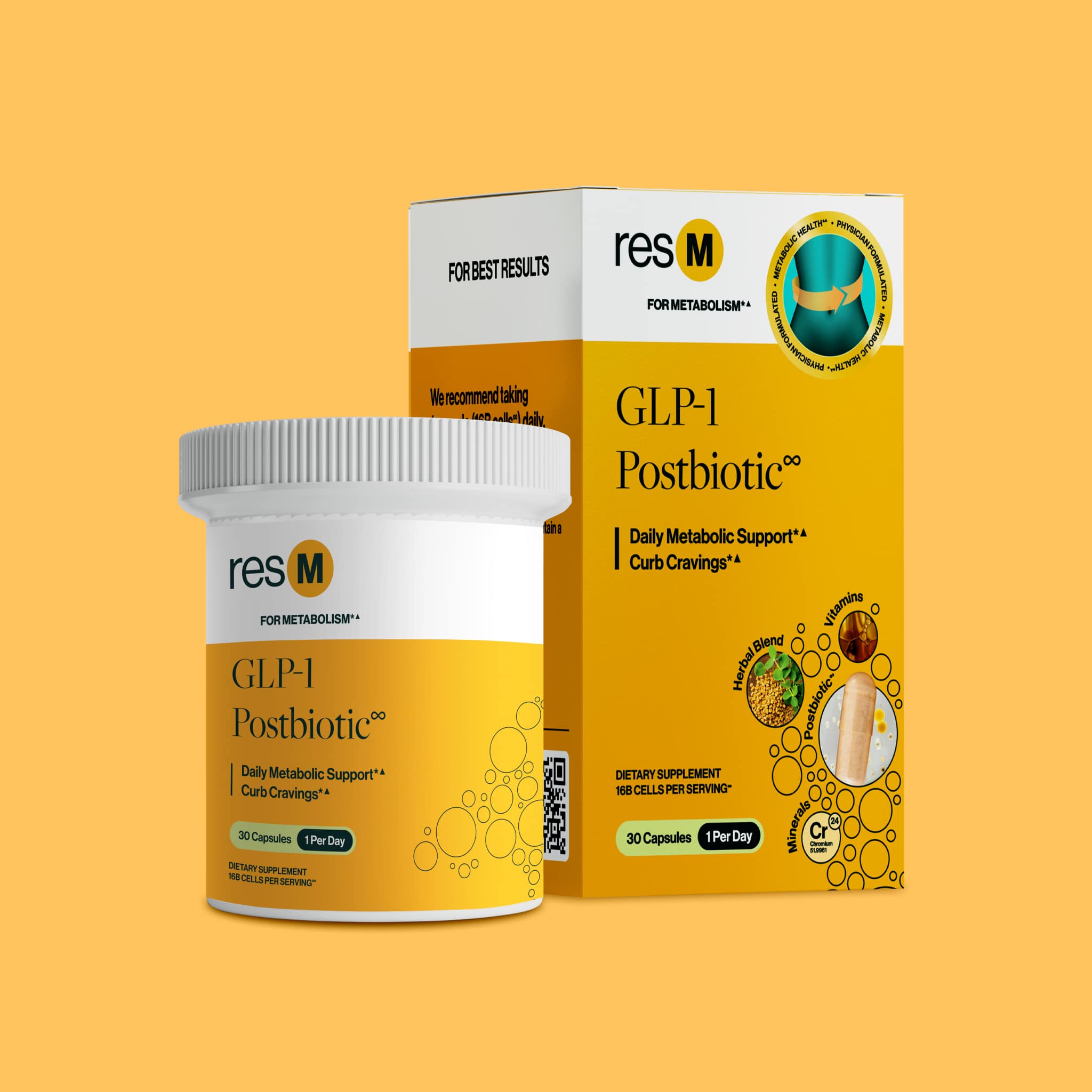Whether you’re struggling with bloating and digestive issues or you’ve simply come to realize how important a balanced microbiome is for overall health, there are many ways you can support your gut health.
Prebiotics and probiotics tend to be the most common, but have you considered gut health vitamins? These essential nutrients, including vitamins A, D, and the B complex, play pivotal roles in maintaining gut integrity, enhancing immune function, and supporting the microbiome.




So what vitamins are good for gut health exactly, and how can you incorporate them into your daily regimen to reap all the benefits they have to offer? You’ve come to the right place!
We’ll highlight all the vitamins that help gut health below and show you foods that contain them, supplements you can try, and other tips for optimizing your gut microbiome.
The Role of the Gut in Overall Health
When most people think about poor gut health, they envision bloating, gas, and other digestive issues. But these symptoms are just the tip of the iceberg.
The gut is closely linked to a myriad of other systems in the body, which is why taking steps to improve your gut microbiome is so important. Here are just a few of the roles your gut plays in holistic health:
- Gut-Brain Axis: Directly affects mental health and emotional well-being through neural, hormonal, and immunological links.
- Immune System Support: Contains about 70% of the body's immune cells. A healthy gut defends against pathogens and supports overall immunity.
- Lung Health: Interacts with the lungs through the gut-lung axis, influencing respiratory health and the body's response to respiratory challenges.
- Digestion and Nutrient Absorption: Breaks down food, absorbs nutrients, and eliminates waste, directly impacting energy levels and overall health.
- Hormonal Regulation: Produces and regulates the hormones that influence appetite, metabolism, and stress response.
- Detoxification: Works with the liver to help remove toxins from the body, reducing the burden on other detoxification pathways.
- Skin Health: Impacts the clarity and integrity of the skin through better nutrient absorption and by supporting a healthy inflammatory response.
- Cardiovascular Health: Influences heart health by interacting with microbes that affect cholesterol levels and blood pressure.
- Mood and Behavior: Modulates the production of neurotransmitters like serotonin, which are largely produced in the gut, affecting mood and behavior.
There’s a lot at stake when it comes to gut health, which is why the idea of using gut health vitamins is so compelling. But what exactly is the link between vitamins and gut health? And what vitamins are good for gut health? Find out below!
What Vitamins Are Good for Gut Health? The Best Vitamins for Gut Health and Other Supplements to Consider
You’ve probably always been told that you need to get plenty of vitamins and minerals in your diet, but you may not realize just how important they are to overall health. Their relationship with the gut is a perfect example of this.
They help maintain and repair the gut lining so that it can do its job - act as a barrier to harmful substances while allowing vital nutrients to pass through.
Certain vitamins also support a diverse microbiome, which will help break down food into the building blocks that your body actually uses. Others promote digestive enzymes to aid in nutrient uptake.
That being said, what are the best vitamins for gut health? We’ll highlight the role of each one below, along with a few honorable mentions that aren’t necessarily vitamins but still belong in your wellness regimen.
Vitamin A
Vitamin A repairs and maintains the gut lining by promoting the growth of epithelial cells, which are crucial for forming the protective lining of the digestive tract. In this sense, Vitamin A helps shield the intestines from harmful substances and pathogens, ensuring that the gut's immune response is appropriately managed without causing damage to the gut itself.
B Vitamins
There are actually quite a few B vitamins that we consider the best vitamins for gut health. Each plays a role in supporting gut health, such as:
Thiamine (Vitamin B1)
Thiamine is essential for transforming nutrients into energy through carbohydrate metabolism, which is crucial for the cells lining the gastrointestinal tract.
It supports smooth functioning of muscle cells within the digestive tract, aiding in the rhythmic contractions known as peristalsis, which moves food along the digestive system.
Riboflavin (Vitamin B2)
Riboflavin plays a key role in the metabolism of fats, drugs, and steroids. It helps maintain the digestive tract lining by ensuring the cells are healthy and capable of repairing themselves.
Riboflavin also works as an antioxidant, fighting free radicals and reducing oxidative stress in the digestive system to create an overall sense of balance.
Niacin (Vitamin B3)
Niacin supports healthy digestive tract mucosa by participating in DNA repair and the production of energy. It helps maintain the barrier against pathogens and supports the secretion of bile and stomach acids, which are necessary for proper digestion.
Pantothenic Acid (Vitamin B5)
As a component of coenzyme A, Pantothenic Acid is involved in the synthesis and metabolism of proteins, fats, and carbohydrates.
It influences the maintenance of healthy digestive tract tissues and aids in the healing process of the gastrointestinal tract, which is continuously exposed to wear and tear.
Pyridoxine (Vitamin B6)
Vitamin B6 is crucial for protein metabolism and the creation of neurotransmitters that help regulate digestive processes.
It also helps produce serotonin and norepinephrine, which can influence gut motility. Additionally, B6 helps modulate a healthy inflammatory response within the gut.
Biotin (Vitamin B7)
Biotin assists in the metabolism of fatty acids, amino acids, and glucose. It helps maintain gut integrity by facilitating cell growth, the production of beneficial fatty acids in the gut, and the repair of damaged tissues.
Folate (Vitamin B9)
Folate is essential for cell division and DNA synthesis, which are crucial for the rapid cell turnover required in the gut lining. It helps prevent the formation of precancerous cells in the colon, particularly in the areas where cells regenerate most frequently.
Methylcobalamin (Vitamin B12)
Vitamin B12 is perhaps one of the most important gut health vitamins.
It supports the health of nerve cells in the digestive tract along with the formation of blood. It aids in nutrient absorption by maintaining the health of the ileum (the last section of the small intestine), where B12 is absorbed.
B12 is also integral to red blood cell production, which is essential for transporting oxygen to gut tissues for cellular respiration and repair.
Vitamin C
Vitamin C helps synthesize collagen, a protein that helps maintain the integrity and structure of the gut lining. It works similarly to Vitamin A except that its mechanism is through collagen rather than epithelial cells.
As a powerful antioxidant, it also protects the cells of the digestive system from oxidative stress, which can damage cell walls and compromise gut health.
Vitamin C enhances the absorption of iron from plant-based foods, too. This supports better nutrition and overall health. It’s one of the most versatile gut health vitamins for all these reasons.
Vitamin D
Vitamin D enhances intestinal absorption of minerals like calcium and phosphorus which contribute to the overall health of the digestive tract.
It also modulates the immune system, helping to regulate the body's immune responses in the gut. Maintaining adequate Vitamin D levels keeps your gut microbiome balanced, promoting a healthier gut environment.
Vitamin E
Vitamin E is another potent antioxidant that plays a role in protecting the gut lining from damage caused by free radicals. It supports the immune system in the gut, helping to ensure that inflammatory responses are balanced and not harmful to the body.
This vitamin also aids in maintaining cell membrane integrity, which is crucial for the cells that line the gastrointestinal tract. This dual-pronged approach makes it one of the best vitamins for gut health.
Prebiotics and Probiotics
While they’re not technically gut health vitamins, prebiotics and probiotics are just as important in the promotion of a healthy gut microbiome. So, we want to explain the role each plays in the gut as well.
Prebiotics are non-digestible fibers that feed the good bacteria in the gut. They act as fuel for these beneficial bacteria, promoting their growth and activity.
Prebiotics help enhance the production of short-chain fatty acids (SCFAs), which are important for colon health and play a role in reducing the risk of certain cancers and cardiovascular complications. They also help regulate bowel movements and ensure a healthy gut microbiome.
On the other hand, probiotics are the actual live beneficial bacteria that reside in the gut and play a crucial role in maintaining gut health by enhancing the gut microbiome. They help balance the intestinal flora, which is essential for proper digestion, nutrient absorption, and immune function.
Probiotics also aid in breaking down food residues that the stomach and small intestine have not digested, potentially reducing gastrointestinal issues and improving gut barrier functions.
Incorporating both probiotics and prebiotics into your diet can create a symbiotic environment in the gut that enhances digestive health, supports immune function, and may even influence mood and cognitive functions through the gut-brain axis.
Minerals for Gut Health
Minerals also play several roles in maintaining gut health, including supporting the physical structures of the gut, aiding in digestion, and ensuring proper enzyme function. Just as with the best vitamins for gut health, there are a few key players we want to reference here:
- Zinc helps maintain the integrity of the intestinal lining, supporting its structure and function. It aids in cell division and the healing of damaged tissues within the digestive tract. Zinc also plays a role in immune function and inflammatory response, making it crucial for protecting against potential gut-related issues.
- Magnesium supports the digestion process by helping to regulate muscle contractions in the gastrointestinal tract, which move food along the digestive system. It also acts as a cofactor for many enzymes involved in protein synthesis, energy production, and nutrient metabolism, supporting overall gut function.
- Iron is essential for the growth of beneficial bacteria in the gut microbiome. It is involved in various metabolic processes of gut microbes and the host, influencing overall gut health. Adequate iron levels help prevent anemia, which can affect gut health and lead to fatigue and weakness.
- Calcium is not only important for bone health but also plays a role in maintaining proper enzyme activity and neurotransmission in the gut. It helps regulate muscle contractions and supports the health of the gut lining.
How to Get the Vitamins for Gut Health in Your Daily Regimen
Now that you’re aware of all the vitamins that help gut health, the question is how you’re going to incorporate them into your daily regimen.
There are two routes you can take, and you’ll likely want to find a balance of both for the best results: diet and supplementation. Learn about sources containing the best vitamins for gut health and find tips on choosing a gut health supplement below.
Dietary Sources
Even if you do end up getting a supplement containing gut health vitamins, it’s still important that you’re consuming whole food sources through your diet. The food groups you need to include in your meals range from fruits and vegetables to whole grains, legumes, dairy, and fortified foods.
Fruits and Vegetables
Fruits and vegetables are the cornerstone of a gut-friendly diet as they’re rich in not just vitamins for gut health but also fiber, minerals, probiotics, and antioxidants. They provide the necessary substrates for healthy digestion and support the growth of beneficial gut bacteria.
Dark leafy greens, such as spinach and kale, are high in fiber and essential nutrients like magnesium, which support muscle function in the gastrointestinal tract.
Berries, apples, and bananas not only offer a rich source of vitamins but also contain various phytochemicals and fibers that promote a healthy gut microbiome.
Whole Grains and Legumes
Whole grains such as brown rice, barley, and whole wheat contain high amounts of fiber, which helps regulate digestion by maintaining bowel regularity and creating the ideal environment for beneficial gut bacteria to thrive and work their magic.
Legumes, including lentils, chickpeas, and beans, are not only fiber-rich but also packed with B vitamins that aid in energy metabolism and overall intestinal health. As we said earlier, B vitamins in particular are among the most important gut health vitamins.
Dairy and Fortified Foods
Dairy products, especially those that are fermented like yogurt and kefir, naturally contain probiotics. Like we mentioned earlier, these are just as important as vitamins that help gut health.
There are many lactose-free options that provide the same probiotic benefits if you’re sensitive to lactose, though. Fortified cereals and plant-based milks are good sources of vitamin D and calcium, which are important for maintaining the integrity of the gut lining.
The Convenience and Affordability of Supplements
While getting your vitamins through your diet is best, supplements are far more convenient, affordable, and consistent. You know exactly how much of each vitamin and mineral you’re getting on a daily basis so you can make sure you’re doing everything possible to support healthy gut function.
They are particularly beneficial for individuals with specific nutritional needs and dietary restrictions, or those living in regions with limited access to a wide variety of fresh produce.
However, it’s not as simple as finding the first multivitamin and adding it to your routine. You need to do your due diligence to ensure you’re getting a scientifically formulated, bioactive vitamin supplement. Here’s what to look for in choosing the best vitamins for gut health:
- Quality and Purity: Supplements must be third-party tested for purity and potency. Reliable certifications or seals from recognized organizations ensure the product meets stringent quality standards.
- Bioavailability: The vitamins in your supplement have to be in their bioavailable forms, ensuring that your body can efficiently absorb and utilize these nutrients. For example, methylated forms of folate and B12 are more readily absorbed than their non-methylated counterparts. This is where most supplements go wrong.
- Synergistic Formulations: Some supplements are designed with a combination of vitamins and minerals that work synergistically to enhance absorption and effectiveness. For instance, Vitamin D absorption is enhanced when taken with Magnesium and Vitamin K.
There’s a lot to consider in choosing gut health vitamins, and there are even more options at your disposal. The good news? Your search ends here at Resbiotic, where the best vitamins for gut health are just a few clicks away.
More Ways to Improve Gut Health Beyond Vitamins
That just about does it for our guide on vitamins that help gut health. Before we wrap things up, though, here are a few more ways you can support healthy gut function and reap all the benefits that come with it:
- Hydration: Drinking ample water daily helps maintain the mucosal lining of the intestines and facilitates the smooth passage of waste, preventing constipation and promoting overall digestive efficiency.
- Regular Exercise: Physical activity stimulates the gut and increases intestinal activity, which can help improve digestion and reduce discomfort associated with bloating and constipation.
- Stress Management: Chronic stress can disrupt the gut-brain interaction, leading to digestive issues. Techniques such as mindfulness, yoga, and meditation can reduce stress and support digestive health.
- Sleep Quality: Poor sleep patterns can affect the microbiome and immune response, potentially leading to digestive problems - so make sure you’re getting enough sleep!
Our blog has more resources on getting started with a gut health detox, and you can also learn about probiotics for lung health, vasaka leaf benefits, herbs for lung health, and more. At this point, though, it’s time we wrapped this guide up with a few closing thoughts…
Final Thoughts on the Best Gut Health Vitamins
Now that you know not just what vitamins help with gut health but how to get them into your body on a daily basis, it’s time for you to take control of your wellness today.
Vitamin A, B Vitamins, Vitamin C, Vitamin D, and Vitamin E all have their place, whether it’s supporting the integrity of the gut lining, enhancing immune function, or ensuring efficient nutrient absorption and digestion.
---
Whether you need a prebiotic or probiotic supplement or both we’ve got clinically studied solutions waiting to be discovered.
These are expert opinions on lifestyle from professionals who are board-certified physicians, registered dietitians, or healthcare professionals. This content does not represent any medical advice for the prevention or treatment of any medical diseases.